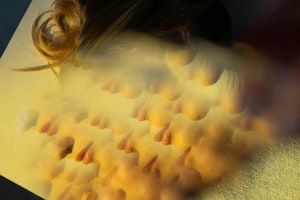
Is Weed A Psychedelic?
Is psychedelic the same as psychoactive? Are mushrooms, LSD, and cannabis part of the same category?
Weed, or cannabis, has been a substance that has been in the spotlight for many years, mainly because this little friend has the ability to affect the way we think, feel, and perceive the world.
But what does it mean that a plant can achieve this in living beings? Well, fast forward to the end, it makes it a psychoactive substance.
Do you know what a psychoactive substance is? And psychedelic? Are they the same? Well, we get excited about the questions, but the good news is that we have the answers too.
Is Cannabis Psychedelic?

Photo by Diane Serik
In high quantities or when consumed in edible form, the active ingredient in cannabis, THC, can sometimes cause psychedelic-like experiences, but this does not make it psychedelic per se.
These experiences can include deep thoughts, a feeling of time slowing down, and even, on rare occasions, seeing things that don’t exist.
While weed can make you see things differently, those changes are generally not as strong or strange as those caused by real psychedelics. Also, while substances like LSD work their magic by messing with the serotonin in our brains, weed engages with the endocannabinoid system.
So, while weed can sometimes create experiences akin to a psychedelic trip, it is not really a classic psychedelic. It has its own effects and acts differently in our brains.
What is A Psychedelic Substance?
Let’s start with the basics: what the heck does “psychedelic” mean?
In simple terms, they are chemical compounds that alter a person’s perception, thinking, and consciousness. These agents often induce intense sensory experiences and sometimes temporarily alter reality.
Two defining characteristics distinguish a substance as psychedelic. First, the subjective effects: psychedelics are famous for their ability to elicit vivid, surreal, and often intense hallucinations.
When a psychedelic substance is consumed, the everyday world can dissolve into a cascade of shapes, colors, and patterns, creating a dreamlike state that can seem completely removed from normal reality.
Psychedelic substances also tend to distort our sense of time and space, making minutes seem like hours or the environment seem expanded or contracted. In addition, many people report spiritual or mystical experiences, accessing profound insights or feelings of oneness and interconnectedness.
Secondly, it is the science behind these experiences that also defines a substance as psychedelic. These substances act primarily on the serotonin receptors in our brains.
Among the best-known psychedelic substances are LSD, psilocybin (found in hallucinogenic mushrooms), and DMT.
What Is A Psychoactive Substance?
A psychoactive substance is a substance that affects mental activity and can alter perception, mood, cognition, or behavior. This term encompasses a variety of substances, including stimulants, depressants, and hallucinogens.
To give you an idea, let’s look at a familiar example: caffeine. When we drink coffee, caffeine blocks the brain receptors to which adenosine usually binds. Adenosine is a neurotransmitter that promotes sleep and relaxation. When caffeine blocks it, the result is an increase in alertness and wakefulness, a clear alteration of mental state.
Psychoactive substances can have both legal and illegal effects, and their classification depends largely on government regulation. This broad category includes substances ranging from caffeine and alcohol to cannabis and psychedelics.
Is Cannabis Psychoactive Or Psychedelic?

Photo by Tania Mousinho
Cannabis is a plant that contains over 100 chemical compounds known as cannabinoids. The most studied and recognized cannabinoid is THC, responsible for the psychoactive effects -the famous high- but does that make it psychedelic? Not really, no.
Weed has psychoactive properties thanks to THC – and all its beloved cousins THCP, HHC, THCA, and more-. When this compound makes its triumphant entry into our system, it goes straight to the cannabinoid receptors in the brain. This is where the magic happens: perception twists, euphoria sets in, and everything takes on a different hue but it’s not a psychedelic trip.
True psychedelics, like LSD, often take users on deep mental journeys and surreal visions. Compared to that, cannabis is more like a leisurely amusement park ride. The effects, while noticeable, are usually less intense and milder.
In conclusion, weed will not take you into the outer space of consciousness like a true psychedelic would.
Herb Recommended Products:










